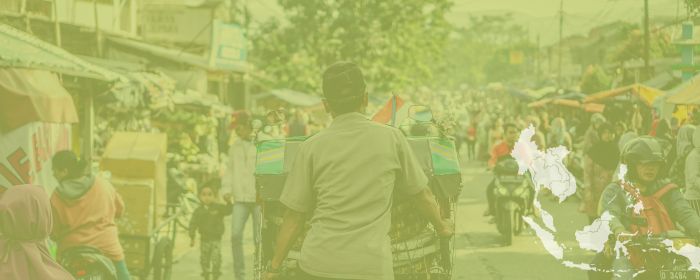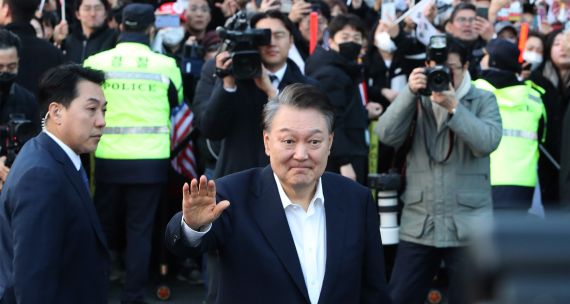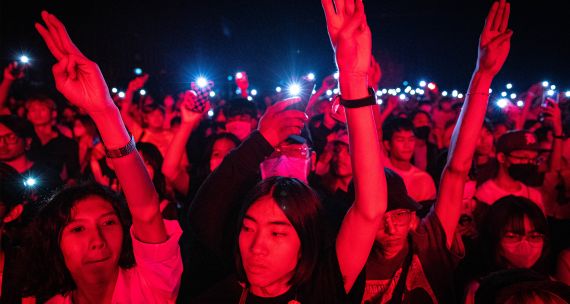The Takeaway
Indonesia has fast-tracked the adoption of controversial revisions to its criminal code, the Kitab Undang-undang Hukum Pidana (KUHP), applicable to all Indonesians and foreigners alike. The revised KUHP, scheduled to take effect in 2025, contains many disputed articles, but the most contentious ones include criminalizing sex outside of marriage, cohabitation between unmarried couples, and insulting the president or state institutions. Despite being widely condemned as draconian and a backsliding of Indonesian democracy by local and international organizations, Indonesian legislators have hailed it as a long-awaited move to move past the country’s “obsolete” colonial criminal code and, by extension, its colonial heritage.
In Brief
Indonesia’s People's Representative Council, the lower house of the national parliament, swiftly passed the much-deliberated revisions to the country’s criminal code with the support of all parties at a plenary session on December 6. Deliberations to revise the KUHP have been part of a longstanding effort to step away from Indonesia’s colonial criminal code. After an attempt in 2019 to pass the new criminal code failed due to nationwide protests — with critics calling it “undemocratic” and fearing that some articles could be weaponized against minorities and used to stamp out civil liberties — the government began discussions again in 2021, and ultimately finalized a draft in July 2022.
The most contentious articles include criminalizing sex outside of marriage and cohabitation between unmarried couples. These acts entail six months to one year of imprisonment, but only if complaints are filed by immediate family members, such as a spouse, parent, or child. Punishment for insulting the president and the government carries a prison sentence of up to three years. The revised criminal code also includes articles that outlaw religious blasphemy, propagation of views counter to Pancasila ideology (encompassing Indonesia’s cultural and religious values), and unauthorized public protests. One article in particular has the potential to reinforce sharia local bylaws that discriminate against women and LGBTQ+ groups. Touted by legislators as a watered-down version of the previous proposed revisions to the KUHP, critics have argued the revisions are too conservative, and that they restrain civil rights, freedom of speech, religion, and belief, while intruding on citizens’ privacy, and discriminating against minorities and marginalized groups.
Implications
Fear and uncertainty have gripped the nation, with apprehension heightened among the country’s vulnerable groups, including women, religious minorities, and the LGBTQ+ community. Businesses and investors also view the revised KUHP articles related to corporate crime as counterproductive, and that these could potentially deter foreign investors who are interested in Indonesia. This comes on the heels of Indonesia’s successful G20 presidency, during which the country solidified its reputation as a sought-after investment destination. Likewise, concerns also loom over tourism in places like Bali, which is finally beginning to see pre-pandemic levels of visitors.
While much is being highlighted about the revised KUHP’s contentious morality provisions on sexual relationships and its impact on foreigners and tourists, observers are of the view that the devil is in the details. The law contains nearly 600 articles that need to be spelled out clearly by lawmakers before it takes effect in 2025.
Legislators tried to dispel these fears by assuring that the “contentious” articles will not be enforced on foreigners and hailed the new law as “progressive.” Human rights groups, however, have deemed the passage of the law a premature act, passed without transparency and lacking adequate public consultation.
To many, the most concerning aspects of the law are the vague provisions around insulting the president and the requirement to notify authorities of any form of public demonstration. Critics view this as a serious setback for freedom of expression, empowering the state with the ability to more easily crack down on dissenters, and anticipate that these provisions will be misused in the lead-up to the 2024 general election. Experts also view the fast-tracking of the law as a tactical manoeuvre by ruling political parties to widen their electoral appeal among conservative, rural voters who comprise the majority of the electorate. It remains to be seen if Indonesian lawmakers and the government will revisit, or even roll-back, some of the provisions, given the outpouring of criticism and mass protests.
What's Next
- Canada-Indonesia CEPA negotiations
Canada and Indonesia are currently engaged in negotiations for a Comprehensive Economic Partnership Agreement with the aim of finalization by 2023. Although Indonesia is currently a relatively minor export destination for Canadian producers, its growth potential as a destination for Canadian products, services, and investments is enormous. The country is set to become the world’s fourth most populous country, and one of the world’s largest economies, within a decade. While Canadians expressed a high level of support for an economic partnership with Indonesia, a public consultation held in 2021 indicated that Canadians are also concerned about the human rights standards in the country.
- Social conservatism on the rise in Southeast Asia?
The revisions to the criminal code are another signal in the trend of rising social conservatism throughout Southeast Asia. Days before legislators approved the revisions, Singapore repealed a colonial prohibition that criminalizes sex between men, while simultaneously amending the constitution to prevent the traditional norms of marriage from being legally challenged. The definition of marriage has implications on a range of policies from public housing and education to family planning.
• Produced by CAST’s Southeast Asia team: Stephanie Lee (Program Manager); Hema Nadarajah (Analyst); and Tim Siao (Analyst).




